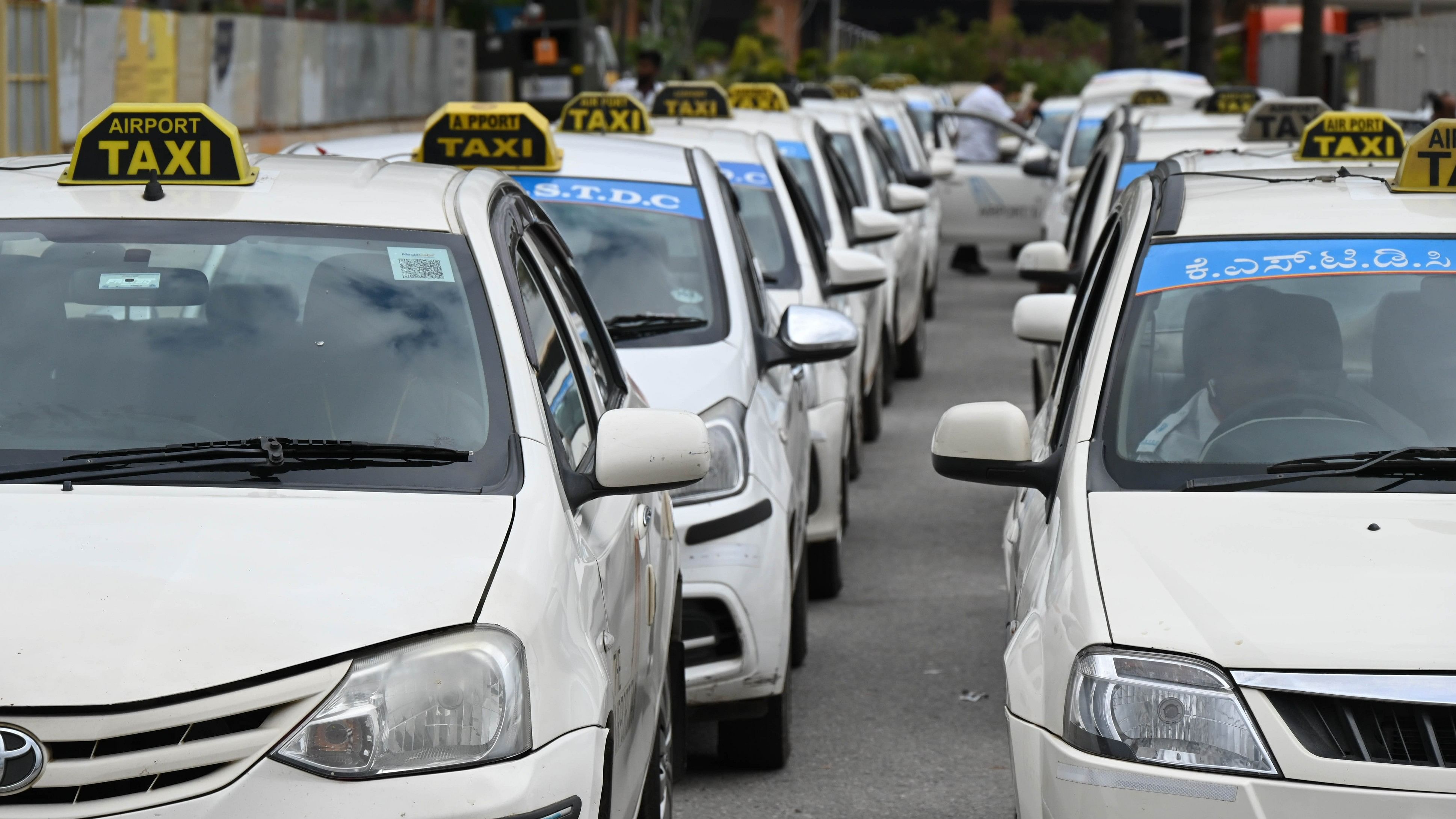
All respondents were men, as no women drivers could be found during the interviews.
Credit: DH FILE PHOTO
Bengaluru: Drivers for app-based cab services face a higher risk of non-communicable diseases due to poor working conditions, a recent study by the Nimhans’ Department of Epidemiology has revealed.
Between March and September 2020, a team of researchers conducted in-person and video call interviews with 340 drivers, who had at least one year of experience working with cab aggregators in Bengaluru.
Eighty percent of the interviewees were randomly selected from transportation hubs like airports, bus stations, and railway stations, while the rest were from leisure and entertainment areas.
All respondents were men, as no women drivers could be found during the interviews.
NCD risk factors
The study aimed to test the link between adverse work environments and the risk of developing non-communicable diseases (NCDs) like diabetes, heart disease, and hypertension among these drivers.
The development of NCDs is normally attributed to behaviours such as unhealthy diet, physical inactivity, tobacco, and alcohol use.
Unlike regular taxi drivers, who have fixed hours and pay due to being employed by a company, app-based cab drivers have irregular working hours, affecting their circadian rhythm and metabolic processes, the study’s principal investigator, Dr Gautham Melur Sukumar, explained to DH.
“Such drivers don’t have social security and often lead sedentary lifestyles, living out of their cabs, especially if they are not from Bengaluru. We wanted to explore how this was affecting their risk of developing one or more NCDs,” Sukumar said.
The semi-structured interviews had questions to identify family health history, work hours, salaries and incentives, NCD risk factors, including body mass index (BMI), height and weight, and substance use.
About 36.8% of drivers were not residents of Bengaluru and lived away from home, which made them vulnerable to unhealthy diets, physical inactivity, substance use, and chronic stress, upping their NCD risks.
Seventy-seven per cent of the drivers interviewed were less than 40 years old. At least 22 per cent were tobacco users and 16.8per cent consumed alcohol. Seventy-eight per cent of drivers reported inadequate physical activity.
The mean weight of the interviewees was 75.3 kg with a mean BMI of 27.7.
The drivers worked an average of 8.7 hours per day, six days a week, which increased their risk of consuming unhealthy diets by five times and their odds of consuming tobacco by 9.3 times.
Due to long hours of sitting, they were also four times more likely to be overweight than people who worked five or fewer days a week. Night shifts upped their risk of alcohol consumption.
In total, 97per cent of drivers reported having one or more NCD risks, heightening their chances of developing NCDs such as hypertension, heart disease and diabetes.
What next?
The study urgently calls for legislation mandating NCD prevention programmes, basic occupational health services, and social security provisions for cab drivers.
“Policies must be strengthened to reduce the incidence of NCDs caused by adverse working conditions,” said the study’s principal investigator, Dr Gautham Melur Sukumar.